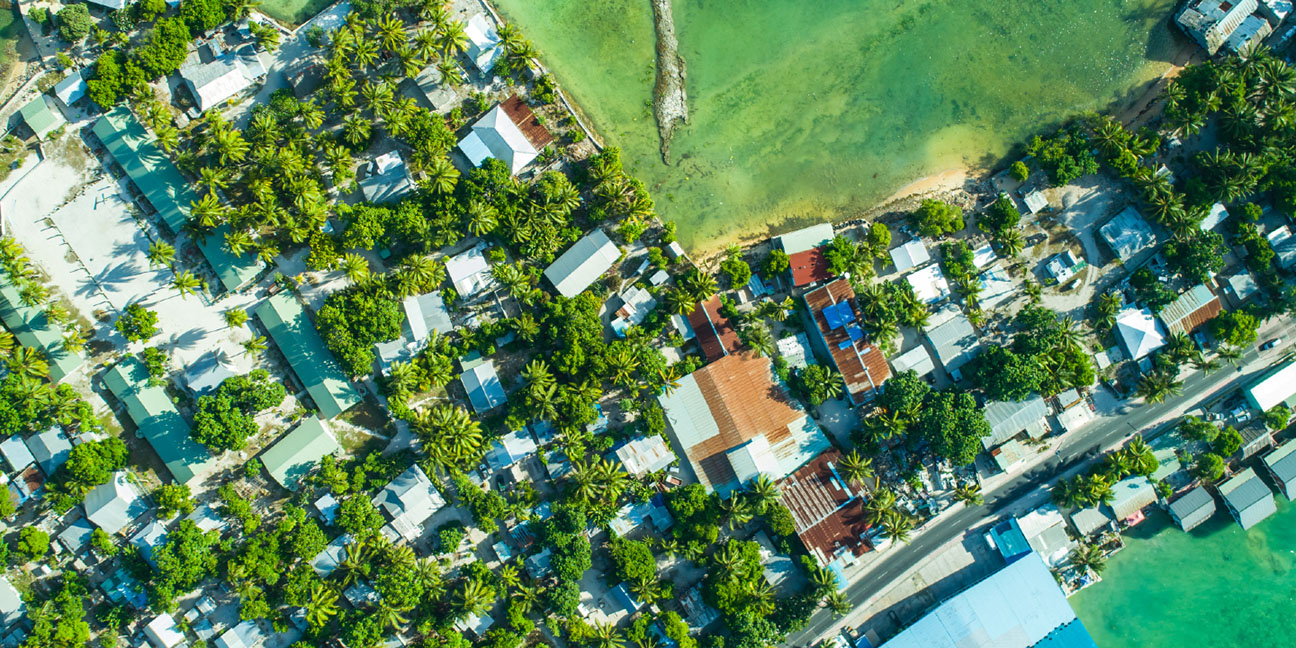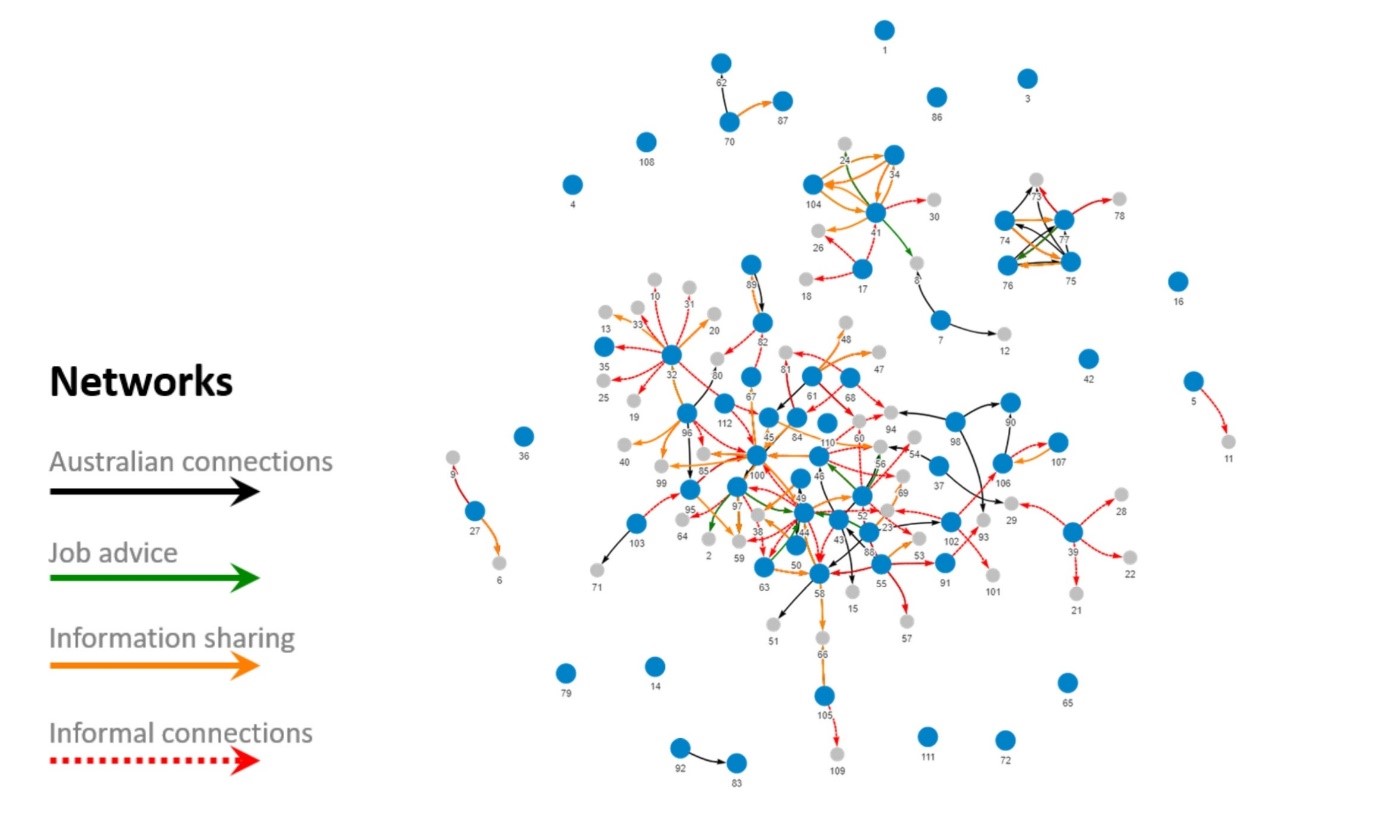
Mapping alumni networks in Kiribati
Research 5 Feb 2021 6 minute readThe Australia Awards Global Tracer Facility has published a case study exploring how the long term goals of Australian Government scholarships and fellowships are being achieved among alumni from Kiribati. The Kiribati case study is the 15th to be produced by the Facility, but the first to utilise social network analysis to examine the interactions between Australia Awards alumni.
Social network analysis examines the patterns and implications of how a network of people interact. Its use in this case study provides a deeper understanding of the relationships between alumni, and how these contribute to achieving three of the four long-term outcomes of the Australia Awards: cooperation with Australia, partnerships with Australia and positive views of Australia.
The analysis investigated four types of networks between alumni: interactions related to
- developing connections with Australia
- seeking job advice
- sharing information and skills related to their field of work
- informal connections based outside of participation in the Australia Awards and including those linked to work, family, church or friendships.
Sixty-four of the 243 Australian Government development scholarship alumni from Kiribati responded to the social network questions, with each respondent able to nominate any of the other 242 Kiribati alumni in their interactions. While these 64 alumni do not represent all Kiribati alumni, the data and patterns that emerged suggest ways in which alumni engagement could be enhanced for the benefit of alumni careers and Australia’s partnership with Kiribati.
Social network terms
|
Analyses of the social network data collected in the case study demonstrate that alumni are most likely to interact with one another because of existing informal relationships. Almost three fifths of the alumni in the case study have informal connections with other alumni and these relationships are highly clustered.
Almost half of the alumni in the study reported that they contact other alumni in order to develop connections with Australia, and two fifths do so in order to share information or skills related to their field of work. These two types of relationships tended to occur in separate groups of alumni. Only one fifth of alumni indicated they seek job advice from other alumni, with these relationships tending to be ‘dyadic’ rather than clustered.
The social network analysis also revealed one fifth of respondents are ‘isolates’ across all four networks, meaning that they do not interact with other alumni in any of the relationships investigated. These 13 alumni range in age from 22 to 66 and graduated between 1993 and 2020, which suggests that some other factor is driving their isolation.
Visualising all four of the networks examined above – the Australian connections network, the job advice network, the information sharing network and the informal connections network – in one network map helps to illustrate the interconnectedness of different alumni interactions.
In the below visualisation, alumni that responded to the survey are blue circles, and grey circles are non-respondents. A line between circles represents a ‘tie’ or relationship between alumni and the arrowheads represented on the ties illustrate the direction of the relationship.

While there is a large interconnected cluster of alumni represented in the middle of the combined network map, there are also groups of separated clusters shown on the periphery. Disconnected groups of alumni could be missing key information transmission across the network and may benefit from targeted information campaigns. Directing information to members of these groups that are also in leadership positions in their employment or the community could make these campaigns more successful.
For ‘isolates’, there could be opportunities to host events to help connect these types of disconnected alumni with the rest of the network to encourage more engagement, collaboration and cooperation with their alumni peers. ■
Find out more:
The Australia Awards Global Tracer Facility is managed by the Australian Council for Educational Research (ACER) and is funded by the Australian Government’s Department of Foreign Affairs and Trade (DFAT). The Swinburne University Centre for Transformative Innovation, Social Network Research Laboratory, supported the development of the Kiribati alumni network analysis.
To read the full Kiribati case study by Sarah Buckley, Amanda Haddow, Dean Lusher and Leyna Clarke, or for further information about the Australia Awards, visit the Department of Foreign Affairs and Trade website.